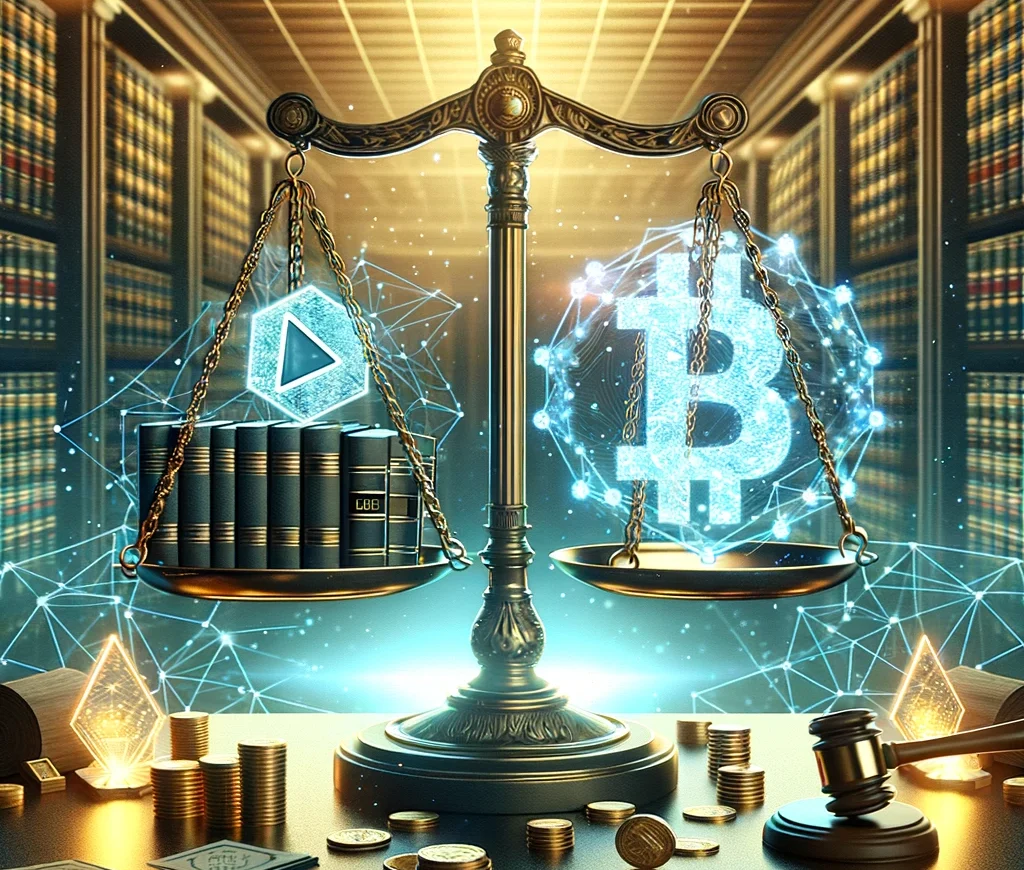Largely thanks to its association with cryptocurrencies like Bitcoin, blockchain technology has become an innovative technology being adopted by many businesses. But despite its potential uses in sectors such as finance, supply chain management and even voting systems, blockchain technology faces major legal barriers that hinder its application and adoption in most industries. Here are the major legal challenges to blockchain adoption:.
1. Regulatory Uncertainty
One of the primary barriers to blockchain adoption is the lack of clear regulatory frameworks in many countries. Given its novelty and the pace at which it’s evolving, legislators and regulators have struggled to keep up. This creates a climate of uncertainty for businesses and developers. For instance, the classification of cryptocurrencies, whether as securities, commodities, or a new asset class entirely, has significant implications for regulatory compliance and taxation.
Furthermore, the decentralized and borderless nature of blockchain technology complicates regulatory efforts. A blockchain can operate across multiple legal jurisdictions, raising questions about which laws apply. This is particularly relevant for global blockchain projects, which may be compliant in one country but face legal challenges in another.
2. Intellectual Property Issues
Blockchain technology raises complex questions regarding intellectual property (IP) rights. While the open-source ethos that drives much of blockchain development encourages sharing and collaboration, often ignoring traditional IP protections, The need to protect innovations becomes more important as businesses invest significant resources into blockchain research and development.
Additionally, the immutability and transparency of blockchains also pose challenges for IP rights. Once information is added to a blockchain, it is impossible to alter or remove. This could lead to conflicts where IP rights need to be enforced or revoked, or where sensitive IP is inadvertently disclosed on a public ledger.
3. Privacy Concerns
Privacy regulations such as the General Data Protection Regulation (GDPR) in the European Union are a challenge to blockchain adoption. The GDPR grants individuals the “right to be forgotten,” allowing them to request the deletion of personal data. But the immutable nature of blockchain makes this right difficult to reconcile with the technology’s fundamental characteristics.
Moreover, while blockchain can enhance privacy through pseudonymity and encryption, these features can also conflict with law enforcement and anti-money laundering (AML) requirements. Regulators require certain customer information to be accessible for financial transactions to prevent illegal activities. In short, balancing privacy with regulatory compliance remains a complex issue for blockchain applications.
4. Smart Contract Legality
Smart contracts are an amazing feature of blockchain technology. However, their legal status remains ambiguous. There are many questions from experts; about the applicability of traditional contract law to smart contracts, including issues of consent, jurisdiction, and the resolution of disputes.
The automated nature of smart contracts also raises concerns about liability. In cases where a smart contract executes in a way that causes financial loss, it can be difficult to determine who is at fault—the developer, the user, or the network itself.
5. Cross-Border Enforcement and Jurisdiction
Blockchain’s global nature means that a transaction or contract could involve parties from multiple countries, each with its own legal system. So which country’s laws apply in the event of a dispute? The decentralized architecture of blockchain, which lacks a central point of control, further complicates jurisdictional and enforcement issues.
Cross-border enforcement of judgments or regulatory actions is another challenge. Even if a legal decision is reached in one country, enforcing it on a decentralized network that spans multiple jurisdictions can be nearly impossible. This undermines the legal certainty that is fundamental to commercial transactions and deters businesses from adopting blockchain technology.
Key Takeaways
1. Regulatory Uncertainty: The lack of clear regulatory frameworks across different jurisdictions creates a challenging environment for blockchain adoption, with the classification of cryptocurrencies being the major aspect of this uncertainty.
2. Intellectual Property Challenges: Blockchain’s open-source nature and the immutability of its ledgers pose unique challenges for protecting and enforcing intellectual property rights within the ecosystem.
3. Privacy and Compliance: reconciling blockchain’s immutability with privacy laws like the GDPR and balancing enhanced privacy features with regulatory requirements for transparency are critical issues that need addressing.
4. Smart Contract Legality: The legal status of smart contracts is still ambiguous, raising questions about their enforceability, the applicability of traditional contract laws, and liability in case of disputes or malfunctions.
5. Cross-Border Enforcement: Blockchain’s global nature complicates jurisdictional and legal enforcement, making it difficult to apply and enforce legal decisions across different countries.
Frequently Asked Questions
1. How does regulatory uncertainty affect blockchain adoption?
Regulatory uncertainty makes it difficult for businesses and developers to ensure compliance, leading to legal risks and hindering investment and innovation in blockchain technology.
2. What are the intellectual property challenges associated with blockchain?
The main challenges include determining how traditional IP rights apply to blockchain innovations, dealing with the exposure of sensitive IP on public ledgers, and reconciling the open-source ethos with the need to protect proprietary developments.
3. How does blockchain technology conflict with privacy laws like the GDPR?
The GDPR’s “right to be forgotten” conflicts with the blockchain’s immutable record-keeping, making it challenging to delete personal data from the blockchain, thus raising privacy concerns.
4. Are smart contracts legally binding?
The legal status of smart contracts is not fully established, with uncertainties around how traditional contract laws apply, how consent is established in a digital context, and who is liable when things go wrong.
5. What makes cross-border enforcement a challenge in blockchain?
The decentralized and borderless nature of blockchain means that activities on the network can span multiple legal jurisdictions, making it difficult to determine which laws apply and how to enforce legal judgments across different countries.










